#ernst jünger
Text

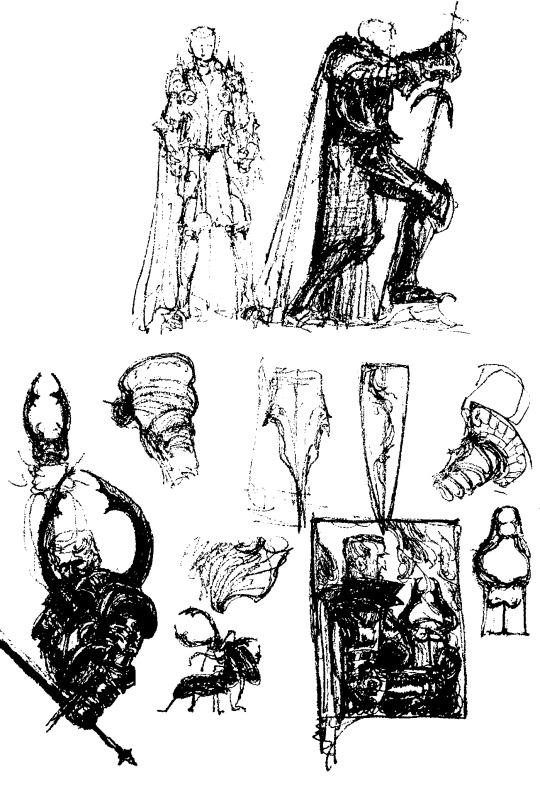
"Sketchbook; Jünger as a Teutonic Beetle Knight"
by Matthew the Stoat
92 notes
·
View notes
Text

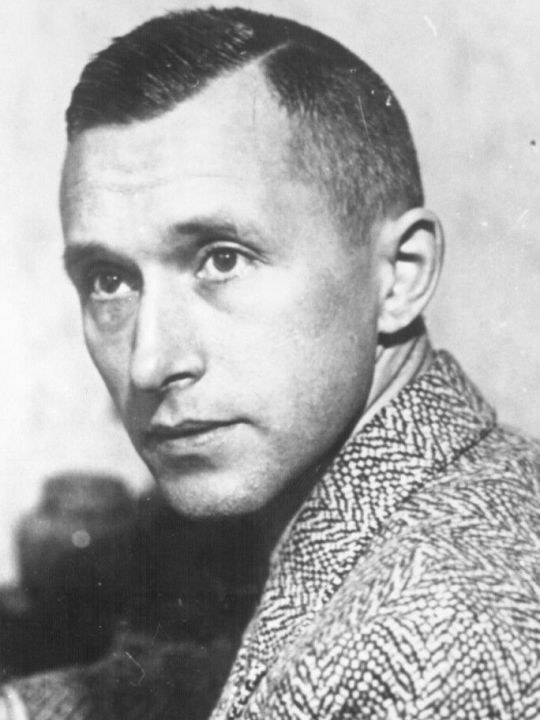
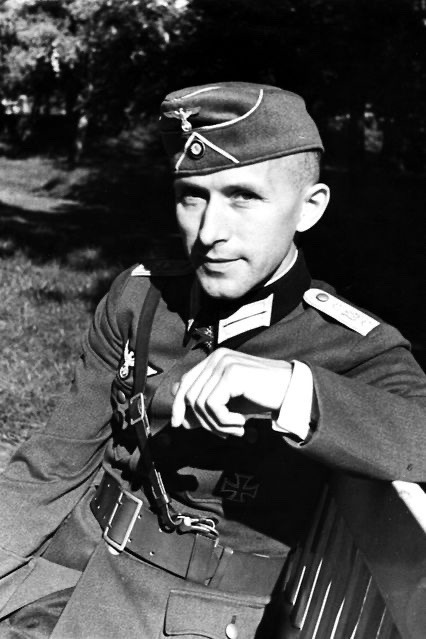

Ernst Jünger during WW1, the 1920s, WW2 and afterwards.
This man lived history. He was born in 1895 and died in 1998. He experienced two world wars and five different forms of government. He grew up in the Kaiserreich, fighting for his country throughout World War I, nearly dying a number of times and earned the highest award, the Pour le Mérite. He began writing and became a successful author and philosopher. He participated in another war, nurtured friendships and saved lives while being the enemy in an occupied country. Survived as an opposer of the Third Reich. He saw a divided Germany but lived long enough to see the reunification.
155 notes
·
View notes
Text
The heroic and cultic world presents an entirely different relation to pain than does the world of sensitivity. While in the latter, as we saw, it is a matter of marginalizing pain and sheltering life from it, in the former the point is to integrate pain and organize life in such a way that one is always armed against it. Here, too, pain plays a significant, but no doubt opposite, role. This is because life strives incessantly to stay in contact with pain. Indeed, discipline means nothing other than this, whether it is of the priestly ascetic kind directed toward abnegation or of the warlike heroic kind directed toward hardening oneself like steel. In both cases, it is a matter of maintaining complete control over life, so that at any hour of the day it can serve a higher calling. The secret of modern sensitivity is that it corresponds to a world in which the body is itself the highest value. This observation explains why modern sensitivity relates to pain as a power to be avoided at all cost, because here pain confronts the body not as an outpost but as the main force and essential core of life.
On Pain
Ernst Jünger
93 notes
·
View notes
Text
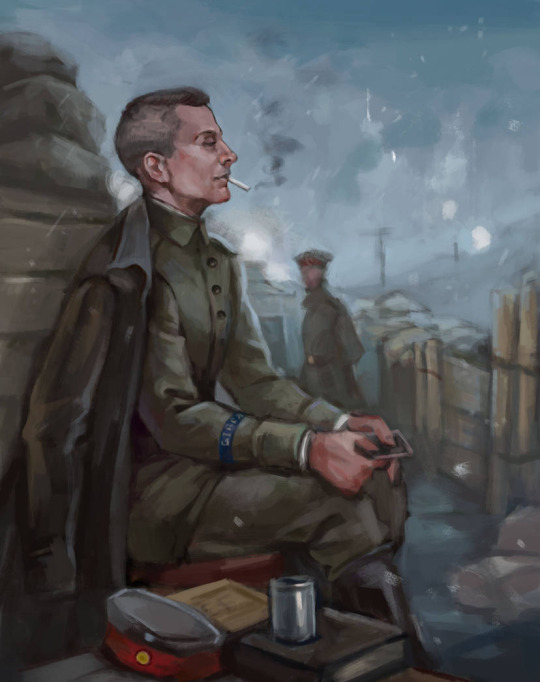
One of favorite writers. His book 'In Stahlgewittern' has still admired me. Story about strength of mind and love of life. Author fought in the WWI and his path between being as soldier to lieutenant and commander impressed
#juenger#junger#jünger#ernst jünger#Germany#soldiers#great war#ww1#history#german army#digital illustration#ww1 art
16 notes
·
View notes
Text
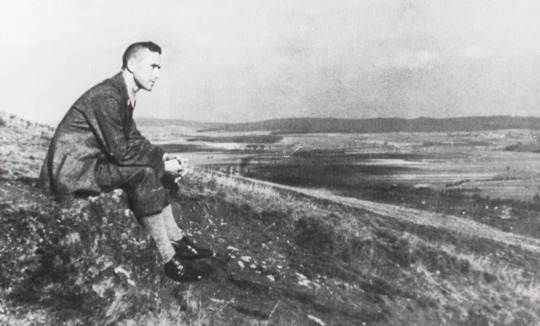
Writer Ernst Jünger (German, 1895–1998), date/location not given in source (possibly 1934?)
from Philippe Barthelet (ed.), Dossier H : Ernst Jünger (Lausanne: L'Âge d'Homme, 2001)
30 notes
·
View notes
Text
Le courage est toujours quelque chose de saint, un jugement divin entre deux idées. Défendre notre cause de plus en plus vigoureusement est conforme à la nature humaine. Notre suprême raison d’être est donc de lutter ; on ne possède vraiment que ce qu’on acquiert en combattant.
Ernst Jünger, La Guerre notre Mère
#citation#littérature allemande#auteur allemand#quote#german literature#german author#ernst jünger#la guerre notre mère#courage#divin#lutter#combat
33 notes
·
View notes
Photo

Ernst Jünger writing at his desk with his cat Prinzessin Li-Ping
99 notes
·
View notes
Text
« Certes, j'ai un faible pour les systèmes d'ordre, pour l'Ordre des Jésuites, pour l'armée prussienne, pour la Cour de Louis XIV… Une telle rigueur m'en impose toujours ».
— Ernst Jünger, Der Spiegel n°33 (1982)

11 notes
·
View notes
Text

“Real nobility is based on scorn, courage, and profound indifference.”
Ernst Jünger
18 notes
·
View notes
Photo
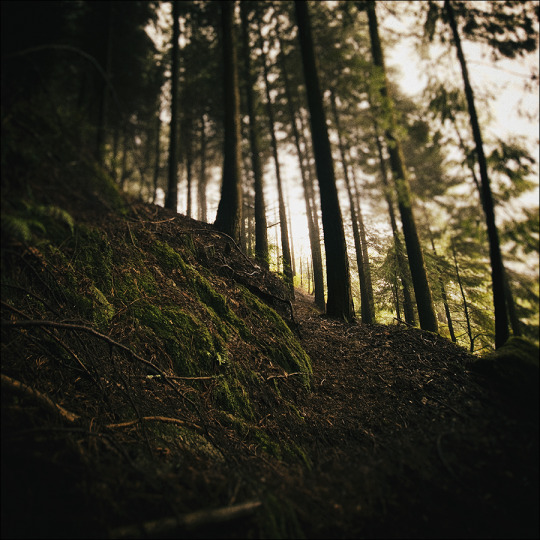
The Forest Passage.
“One must work in solitude as a man who opens a clearing in virgin forest.”
Ernst Jünger
#Photography#My Photography#Digital Photography#6x6#Square Photography#Mood#Atmospheric Photography#Color Photography#Nature Photography#Forest#Ernst Jünger#Nature#Portugal#Ambient#Atmospheric Nature#The Forest Passage#Trees#Rui Luz#Noir Division
67 notes
·
View notes
Text
This is the clash of feelings, the struggle that rages in the warrior's chest when he wanders through the fiery deserts of enormous battles: horror, fear, the foreboding of destruction and the eagerness to be unleashed. As soon as he, a small world raging through the horror within him, has discharged the ferocity that has been pent up to the point of bursting in a sudden explosion, moments lost forever to a vibrant memory, when the blood is flowing, whether from his own wound or that of the enemy, the mists sink before his eyes. He looks around, a sleepwalker, awakened from oppressive dreams. The monstrous dream, dreamt by the beast within him, of memories of times when man fought his way through ever-threatening hordes in desolate steppes, fades and leaves him behind, horrified, blinded by the unimaginable which resides within him, exhausted by the enormous waste of will and brute force.
-Ernst Jünger, War as an Inner Experience
16 notes
·
View notes
Text
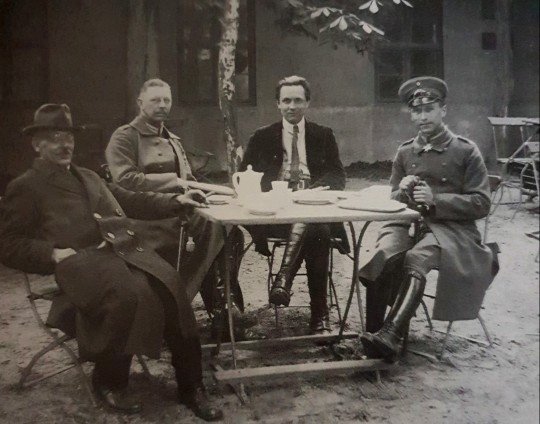

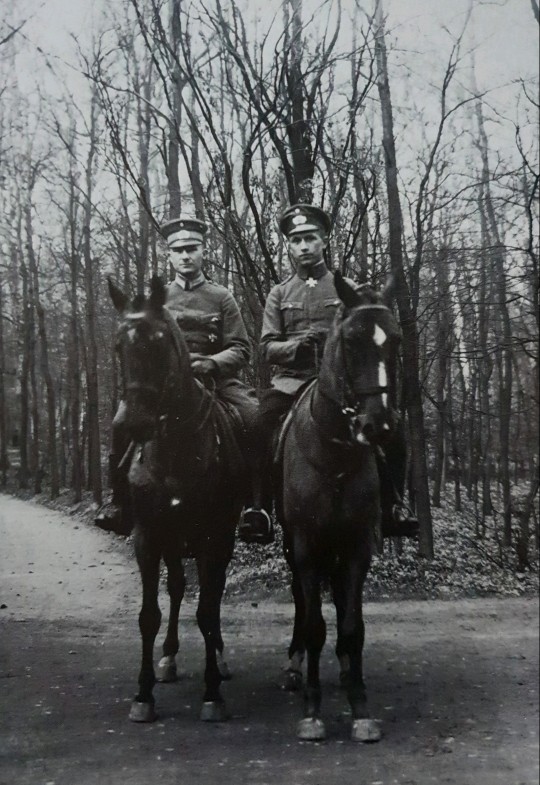
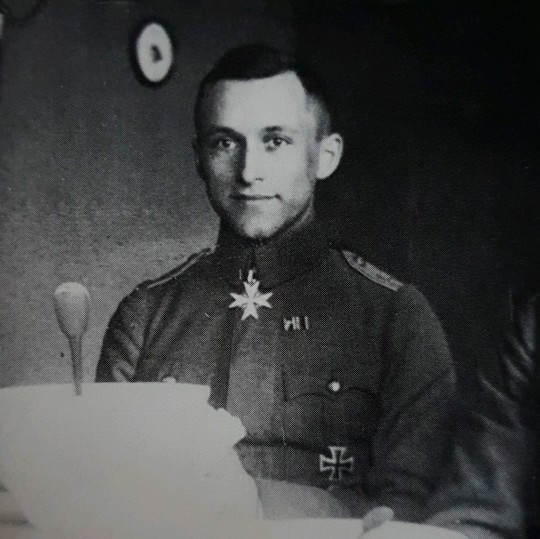

Jünger was one of a few who were accepted into the Reichswehr after the war. However, he did not identify with the new government and left the army. Alongside his studies in natural sciences, he began to write. His war diary In Stahlgewittern (Storms of Steel) was a great success. In the late 1920s, he devoted himself mainly to political and philosophical writings.
72 notes
·
View notes
Text
La vie quotidienne de Jünger à 90 berges: bain à 5°, pas de repas de midi pour garder la pêche…
7 notes
·
View notes
Photo
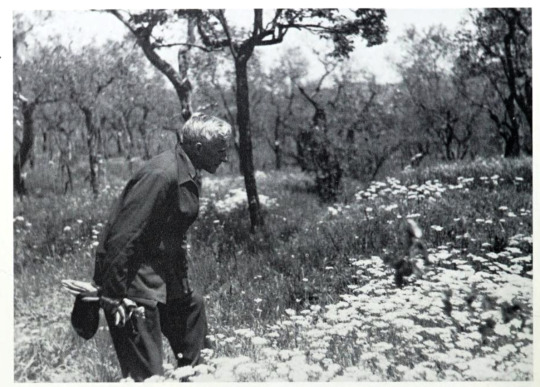
Ernst Jünger hunting for beetles in Montecatini, Tuscany, 1956
from Ernst Jünger: Leben und Werk in Bildern und Texten (Klett-Cotta, 1988)
224 notes
·
View notes

